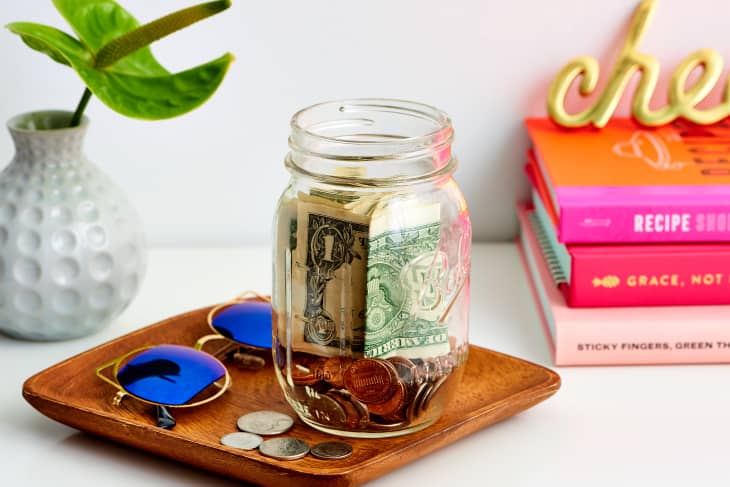4 Expert-Approved Money Habits to Follow if You’re Busier Than Ever (But Your Budget Has Remained the Same)

Raise your hand if, after a year and a half of delayed plans and Zoom celebrations, you’ve been spending a little more than usual. You’re not alone — and your newfound impulse has a name. Revenge spending is defined as spending excessively to make up for a dry spell. According to Investopedia, people engage in the habit in order to give themselves a sense of control and normalcy after an unprecedented event.
“You usually see people spend this way after a particularly tough time in their lives, like the pandemic,” Lauren Silbert, the Vice President of personal finance at TheBalance.com, tells Apartment Therapy. But she also warns that revenge spending often focuses “on things that aren’t essentials, caused by an urge to make up for lost time, express pent up emotions, or fulfill needs that have been neglected.”
Enter that second or third new outfit you added to cart to replace your tie-dye sweats, or that string of nights out with friends over drinks and dinner. Yet while vaccination rates have risen and some states are relaxing shelter-in-place guidelines, chances are good your paycheck or income hasn’t risen to accommodate your growing social calendar. If you have savings banked up from the past year, indulging here and there is totally understandable — but where is the line between making up for lost time, and being monetarily risky?
Revenge spending is easy to empathize with, John Schmoll, the founder of Frugal Rules, notes. “After spending the last 15-plus months avoiding spending on things like travel, or other big purchases, it’s understandable to want to go out and overspend as things open up more,” he tells Apartment Therapy. “However, it’s not worth it to accrue debt to have that experience or event.”
If your city is opening back up, but your bank account is staying the same size, here are four key things to keep in mind.
Be clear on what your needs are.
You want to be sure you have enough funds both before and after living your best life. “If you saved money for a vacation last year, go ahead and spend it on travel or an experience this year,” Schmoll says. “However, don’t shift your overall goals to the background. By keeping them forefront you can assess whether or not it’s worth sacrificing reaching them by taking on debt or blowing savings.”
Being clear on what matters long-term — such as paying for your groceries in cash this month or paying off all of your student loans — can help you balance how much to spend on the “right now” by keeping all of your spending in perspective.
List out everything you want and how much each will cost.
This exercise might seem like an extra step, but facing the reality of what you want can help you better pace yourself by deciding what you actually need. “Write up a list, scratch what isn’t worth it or can wait, then budget to make the remaining items possible,” Silbert says.
Creating a tentative balance sheet can be a rude awakening — it’s like adding all of your dream items to the digital cart and taking a good, hard look at the number that awaits you before you hit check-out. “You immediately see how much your daydreaming is going to cost you, and usually it’s too much!” Silbert says. “Even if you have to save up for a few extra months to make something happen, it feels a lot better when you know you can afford it.”
Honor your wants — within reason.
Your desires and interests are valid and should be fulfilled. Know that you’re catching up on things that make the human experience exciting — and that’s completely worth investing in properly.
“It’s OK to spend, especially if you have the money saved for the item or experience,” Schmoll says. “Like many things with personal finance, it’s about finding a balance to enjoy life without hindering your other financial goals.”
Even informally, think the purchase over before buying.
A rushed decision generally tends to be a poor one. Even waiting 24 hours to buy a treat-yourself item can give you mental clarity on whether it’s really worth the monetary sacrifice.
“Easier said than done, but another great test against the urge to splurge is time,” Silbert says. “I ask myself, ‘would I still buy this, at this price, later or under different circumstances?’ If the answer is no, then that’s a sign this could be an impulse buy.”